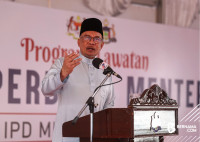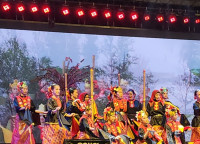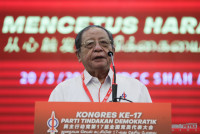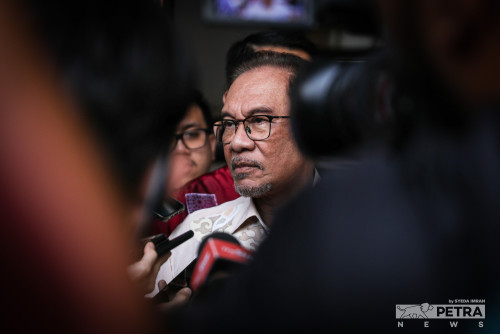MELAKA – Nestled within bustling, touristy Melaka City lies a small, peaceful 2.8ha village that often goes unnoticed by passers-by.
Built in the early 1700s, Kg Chitty in Gajah Berang is home to some 30 families of the Chitty community, also known as the Indian Peranakan, the descendants of South Indian traders who first arrived in Melaka in the 14th century.
Far from its heyday, where scores of its people were sprawled around the city doing business and later farming, the community is now struggling to survive as more and more of its younger generation moves out of the village.
“I am actually very concerned. If we are not careful with this, we will slowly shrink. We will diminish,” said Palanee Maniam, a sixth-generation Melakan Chitty.
In an interview with The Vibes, Palanee, 79, who is one of the trustees for the community, explained that many of the villagers are shifting due to multiple reasons: some after marriage, others looking for greener pastures.
These migrations among the village folk have raised concern among those who stay behind that the community and kampung’s identity and culture will be lost in time.
“These are good people, with much expertise. But we don’t have many opportunities here… I hope these people will never forget their roots.
They can come back home with good ideas and see what can be done (about the community). Maybe help us financially, help the younger people, give them support in education or in whichever way they think is right.”
Even for those who are staying in the village, some of the community’s more distinct lifestyles and customs are slowly diminishing as they simplify their culture and become influenced by modern society.
This includes only wearing traditional clothes, such as long kebaya for women, during festivals, compared to an earlier time when such attire was donned almost daily.
“Some of the kampung people are maintaining our way of life, especially during functions like weddings. But some people are a bit shy about wearing them. We need (to wear our attire) when visiting our neighbours, our people. We need to try and maintain that.”
The rich culture of the Malay-speaking Indian Peranakan
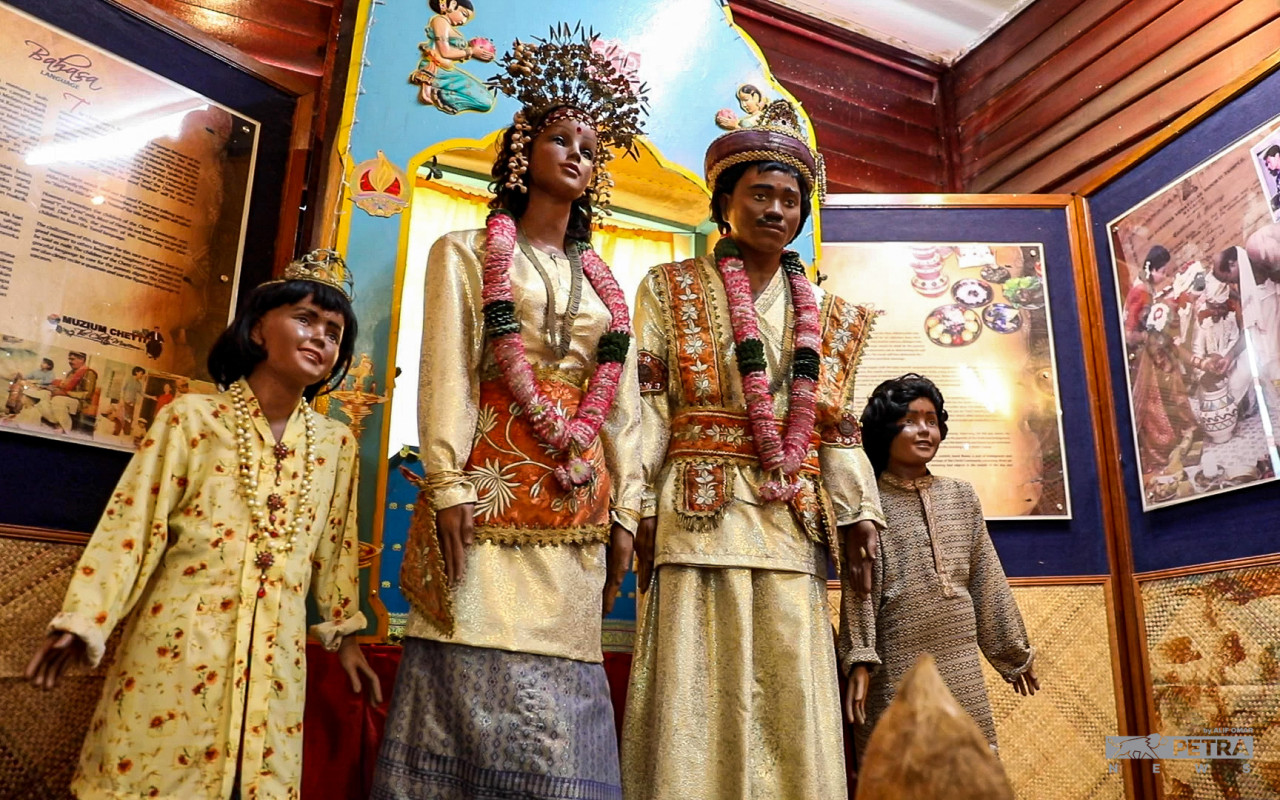
The Chitty first stepped foot in Melaka hundreds of years ago during the era of Parameswara, when merchants from southern India travelled offshore in search for business opportunities during the height of the spice trade.
Many of them settled down here by marrying local women, becoming one of the earliest Melakan settlers.
While maintaining their Hindu religion and way of life, the community has adopted many Malay cultural practices as well as a few Chinese customs.
This explains why the Chitty use Malay as their main language and many barely speak or understand Tamil.
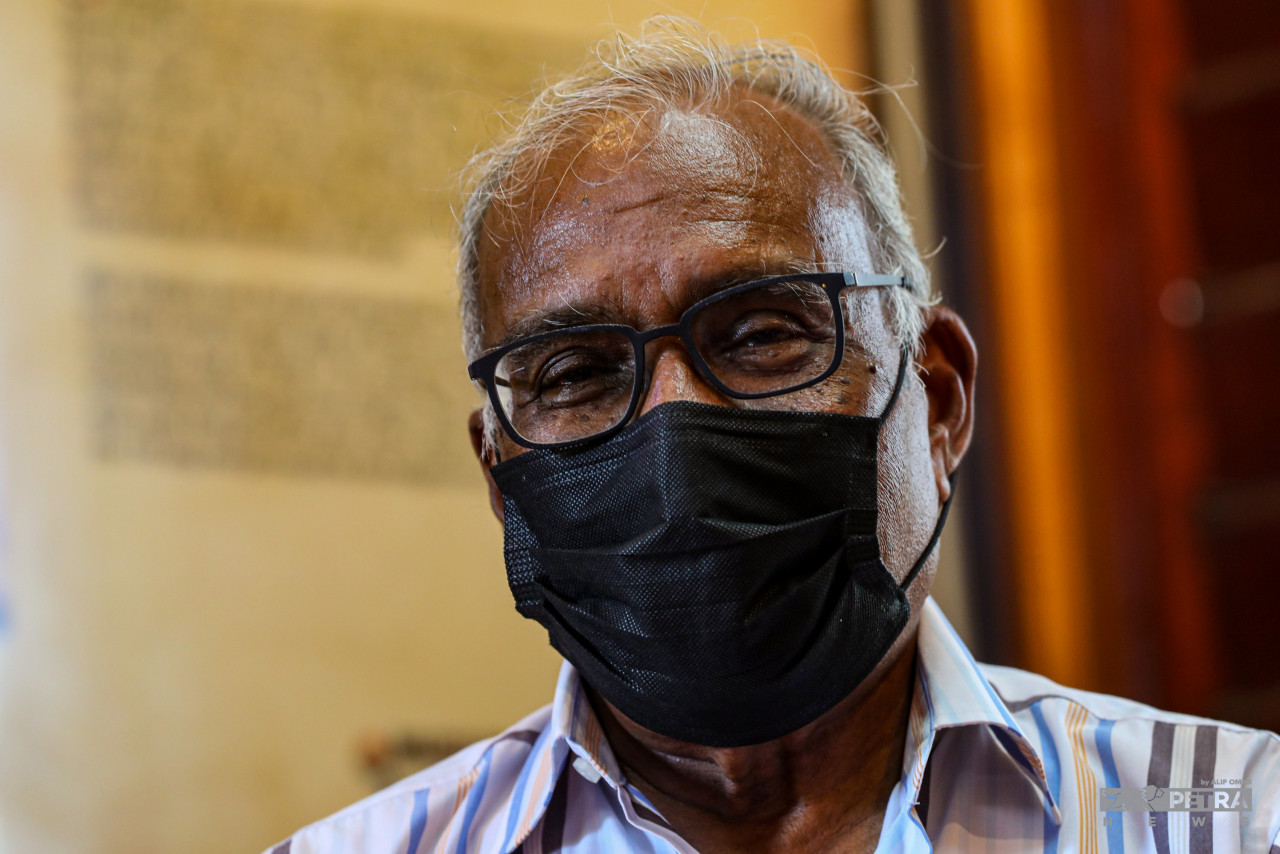
They can come back home with good ideas and see what can be done (about the community). Maybe help us financially, help the younger people, give them support in education or in whichever way they think is right.”
According to S. Valliammai, a caretaker of the Chitty Museum and a sixth-generation Chitty settler, when the traders headed out to work, sometimes for months on end, only their Malay-speaking wives would be at home with the children.
The assimilation of Malay culture is further evident in their various celebrations, including religious festivals like Deepavali and Ponggal, where they would serve food such as wajik, dodol, sagon and other traditional kuih, Valliammai told The Vibes.
“For functions like weddings, we will take the bride to the temple accompanied by bunga mangga and sometimes kompang. The night before the wedding, we even have joget ronggeng and joget lambak.”
While similarly expressing concern over the community’s dying identity, the 74-year-old Valliammai said all is not lost since, as much as possible, villagers still try to keep their traditions going.
Even though many have moved out of the village, they will return home and join the families when there are any functions, maybe once a year.”
Reunions key in Chitty survival
For S. Kanagalingam Pillay, 57, it is these occasional reunions that help keep the community and its identity alive and intact, at least for the time being.
He said the Melakan Chitty are fortunate to have their own kampung to call home, as this has allowed members to return, reunite, and gather for various social and religious events and festivals.
“This kampung is a living history…it’s really a living museum. This is where we can unite our family members. No doubt many are staying outside, but when there is a gathering, they will come back. That’s how we maintain our relationships.
“Additionally, we have a religious or social event every month. We organise prayers at the temple and encourage villagers, especially the younger ones, to take part, do gotong-royong, among others.”
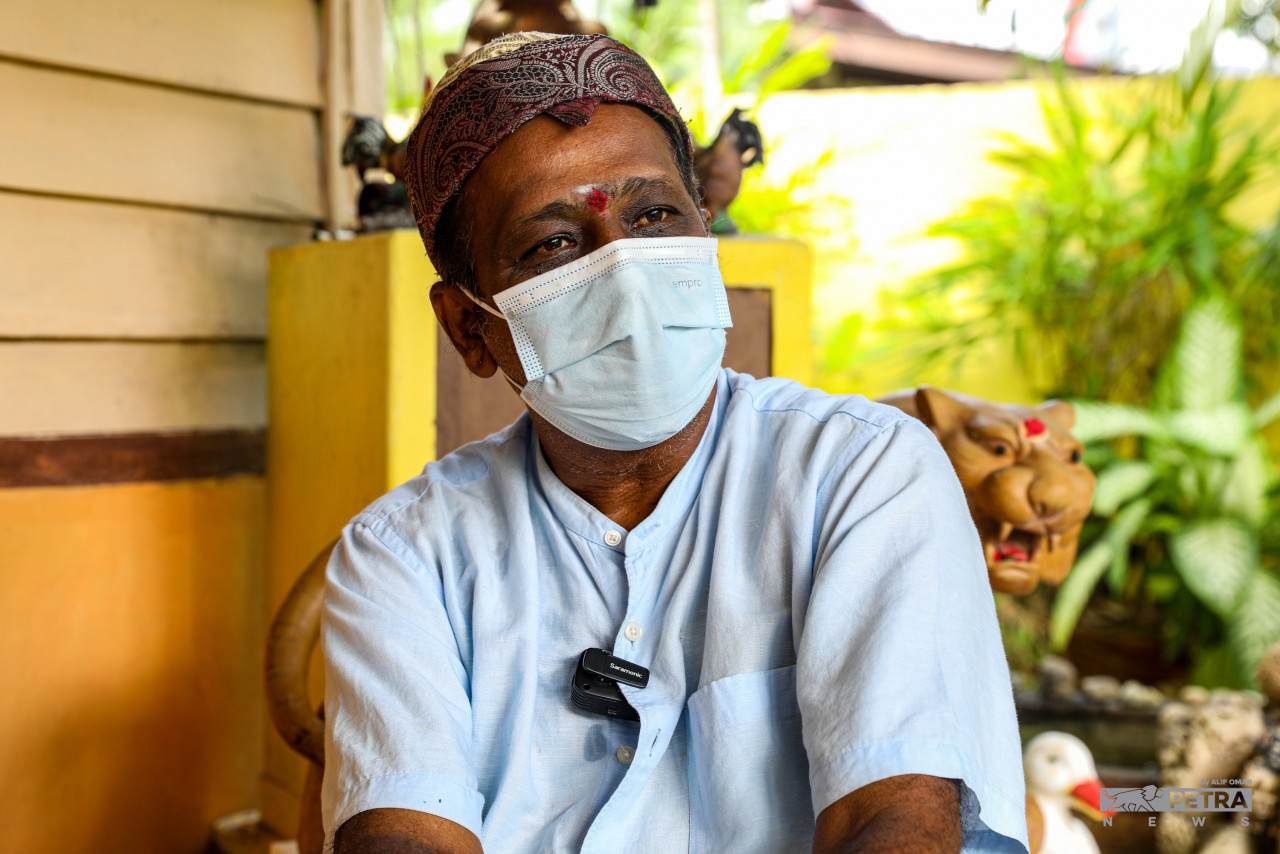
Acknowledging the possibility of the community going extinct in the near future, Kanagalingam, a seventh-generation Melakan Chitty, said this is where the older generation plays a vital role.
“The parents and grandparents, they are the ones who should lead, show a good example, and guide the younger generation. The youngsters, meanwhile, are always urged to get involved in any gatherings,” he said.
Meanwhile, Palanee said to ensure the community’s survival, he is planning to form a technical committee among the villagers where they can share their grouses and concerns.
He also hopes the government will finally give Bumiputera recognition to the Chitty community, after their last attempt to attain similar rights in 2017 were ignored by the authorities. – The Vibes, November 17, 2021




